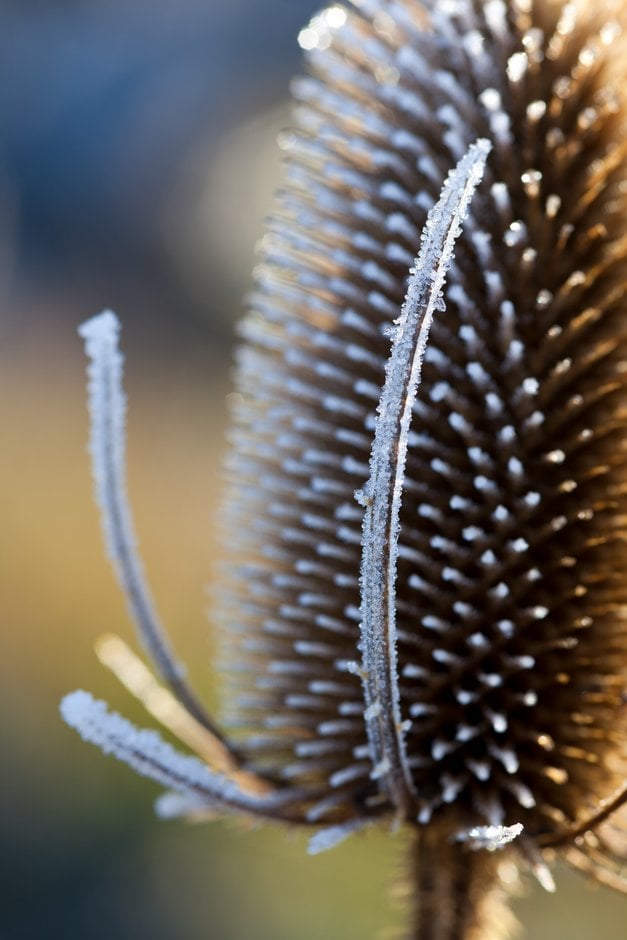Dipsacus fullonum
common teasel
A branched, upright biennial, to 3m. Foliage is bright green, prickly on lower mid-ribs, the stem leaves joined at the base to cup the stem. Flowerheads, to 6cm long, are stiffly bristly, with tiny blue flowers appearing in a band round the flowerhead over an extended flowering time. Plant remains intact throughout winter, and seedheads attract goldfinches
Other common names
Adam's flannelbarber's brushes
see morecarde thistle
church brooms
clothes brush
gypsy's comb
hutton weed
Indian thistle
prickly back
shepherd's rod
shepherd's staff
Venus' basin
Venus' bath
Venus' cup
water thistle
wild teasel
wood broom
crib y pannwr
Synonyms
Dipsacus fullonum subsp. fullonumDipsacus sylvestris
Size
Ultimate height
1.5–2.5 metresTime to ultimate height
1–2 yearsUltimate spread
0.5–1 metresGrowing conditions
Moisture
Moist but well–drained, Poorly–drained, Well–drainedpH
Acid, Alkaline, NeutralColour & scent
| Stem | Flower | Foliage | Fruit | |
| Spring | Green | |||
|---|---|---|---|---|
| Summer | Blue | Green | ||
| Autumn | Brown | Brown | ||
| Winter | Brown |
Position
- Full sun
- Partial shade
Aspect
West–facing or East–facing or South–facing
Exposure
Exposed Hardiness
H7Botanical details
- Family
- Caprifoliaceae
- Native to GB / Ireland
- Yes
- Foliage
- Deciduous
- Habit
- Columnar upright
- Genus
Dipsacus are erect biennials or perennials with simple or pinnate leaves and crowded heads of numerous small flowers in dense terminal capitula, the calyx teeth bristly
- Name status
Correct
- Plant range
- Europe, N Africa, SW Asia
How to grow
Cultivation
Grow in any moderately fertile soil, including heavy clay, in sun or partial shade. The flowerheads can be harvested for air-drying from mid to late summer, or left for birds over winter
Propagation
Propagate by seed in situ in autumn or spring
Suggested planting locations and garden types
- Cottage and informal garden
- Wildflower meadow
- Wildlife gardens
- Flower borders and beds
- Cut flowers
Pruning
No pruning required
Pests
May be susceptible to aphids
Diseases
Generally disease-free
Get involved
The Royal Horticultural Society is the UK’s leading gardening charity. We aim to enrich everyone’s life through plants, and make the UK a greener and more beautiful place.
